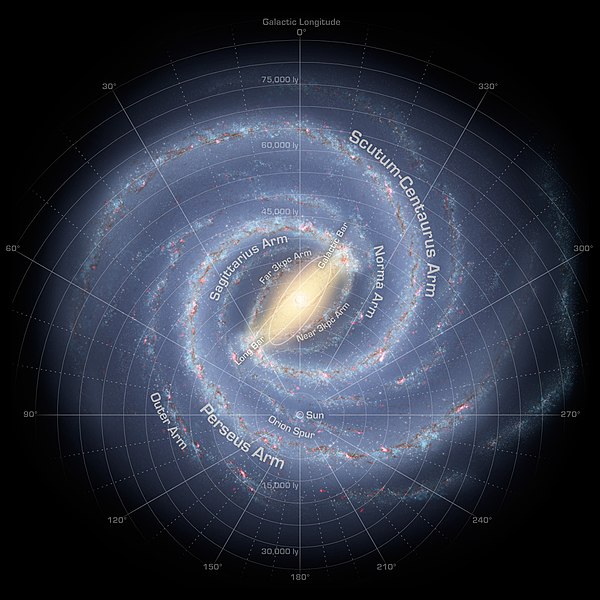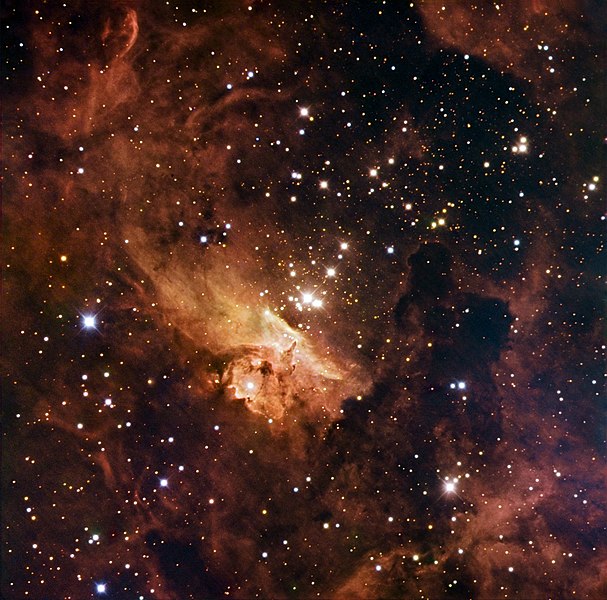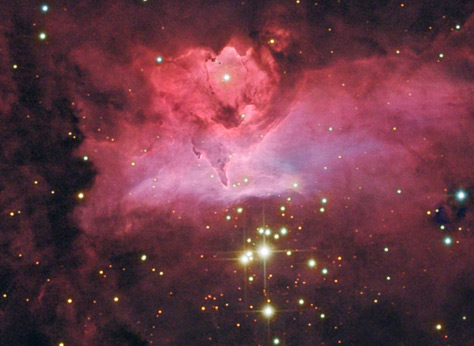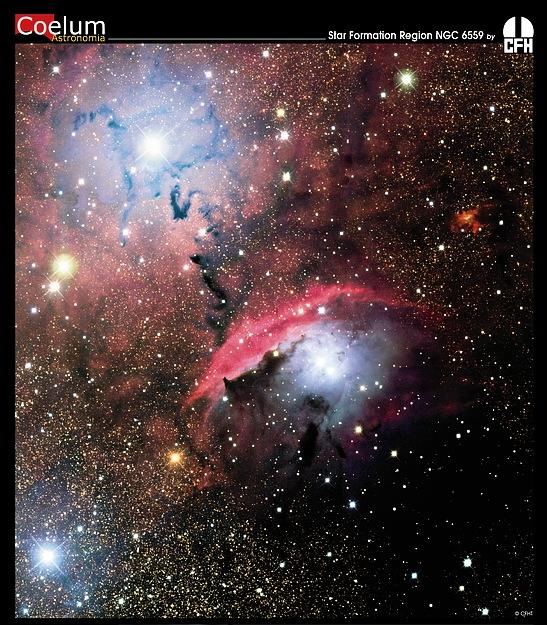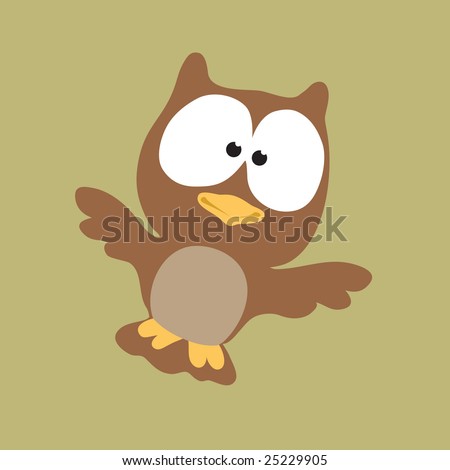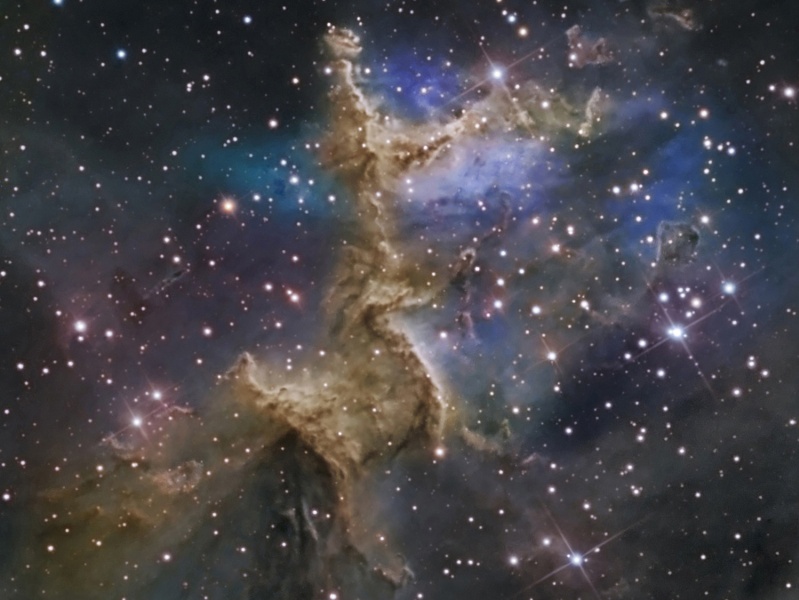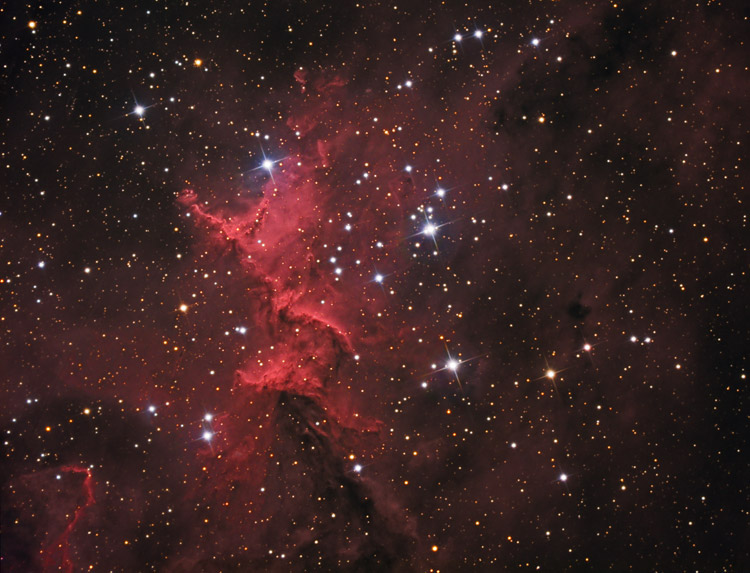http://en.wikipedia.org/wiki/Night_on_Bald_Mountain wrote:
<<Night on Bald Mountain is a composition by Modest Mussorgsky that exists in at least two versions—a seldom performed 1867 version or a later (1886) and very popular "fantasy for orchestra" arranged by Nikolai Rimsky-Korsakov, A Night on the Bare Mountain (Ночь на лысой горе, Noch' na lysoy gorye). The Russian word "лысая" (lïsaya) literally means "bald", but is used in this case figuratively for a mountain supposedly barren of trees. In English, the titles A Night on the Bare Mountain or Night on Bald Mountain are used.
Inspired by Russian literary works and legend, Mussorgsky made a witches' sabbath the theme of the original tone poem, completed on June 23, 1867 (St. John's Eve).
A sheet of paper apparently found among Mussorgsky's manuscripts contains the following statement: "Program of the opera St. John's Night, in three acts, after the tale by Gogol, written by P. Boborykin, in the presence and with the help of Modest Mussorgsky, Yevgeny Mussorgsky, and Vasily. Witness to the proceedings: Mily Balakirev." This curious fragment, dated December 25, 1858, has been interpreted as an indication of Mussorgsky's intention of writing an opera on the subject of Gogol's short story St. John's Eve (Russian: Вечер накануне Ивана Купала, Vecher nakanune Ivana Kupala, St. John's Eve). Gogol's tale contains the elements of witchcraft common to other stories in the Evenings on a Farm near Dikanka collection, but does not, as is often claimed, feature a witches' sabbath. Although Mussorgsky may have composed thematic sketches for this project, his plans were not mentioned.
Rimsky-Korsakov declares in his memoirs (Chronicle of My Musical Life) that in the early 1860s Mussorgsky had written a version of the Night on Bald Mountain music for piano and orchestra, under the influence of
Franz Liszt's Totentanz. However, it is believed that Mussorgsky did not hear Liszt's work until 1866, by which time he was planning the orchestral tone poem St. John's Night on the Bare Mountain. No trace of a work for piano and orchestra has survived outside Rimsky-Korsakov's recollections, so it is assumed that the score was lost, or, more likely, that it had never existed.
In 1866 Mussorgsky wrote to Balakirev expressing a desire to discuss his plans for The Witches, his informal name for his Night on Bald Mountain music. In early June 1867, he began composing the orchestral version of the piece, and finished the score on 23 June (St. John's Eve). He described the event in a letter to Vladimir Nikolsky:
"My St. John's Night on the Bare Mountain is, in form and character, Russian and original; and I want to feel sure that it is thoroughly in keeping with historic truth and Russian folk tradition — otherwise it would not be good enough. I wrote it quickly, straight away in full score without preliminary rough drafts, in twelve days. It seethed within me, and I worked day and night, hardly knowing what was happening within me. And now I see in my wicked prank an independent Russian product, free from German profundity and routine, and, like my Savishna, grown on our country's soil and nurtured on Russian bread."
Russian legend tells of a witches' sabbath taking place on St. John's Night (June 23–24) on the Lysa Hora (Bald Mountain), near Kiev:
"So far as my memory doesn't deceive me, the witches used to gather on this mountain, gossip, play tricks and await their chief — Satan. On his arrival they, i.e. the witches, formed a circle round the throne on which he sat, in the form of a kid, and sang his praise. When Satan was worked up into a sufficient passion by the witches' praises, he gave the command for the sabbath, in which he chose for himself the witches who caught his fancy."
Having finally completed the work, Mussorgsky was crushed when his mentor Mily Balakirev was savagely critical of it. The score of this 'first version' was put aside, and did not appear in print until 1968.
In the years after Mussorgsky's death, his friends prepared his manuscripts for publication and created performing editions of his unfinished works to enable them to enter the repertoire. The majority of the editorial work was done by Rimsky-Korsakov, who in 1886 produced a redacted edition of A Night on the Bare Mountain from the Dream Vision of the Peasant Lad vocal score and premiered at the first of the Russian Symphony Concerts:
“Subterranean sounds of unearthly voices. Appearance of the Spirits of Darkness, followed by that of Chornobog. Glorification of Chornobog and celebration of the Black Mass. Witches’ Sabbath. At the height of the orgy, the bell of the little village church is heard from afar. The Spirits of Darkness are dispersed. Daybreak.” —Nikolay Rimsky-Korsakov>>
 A Massive Star in NGC 6357
A Massive Star in NGC 6357


